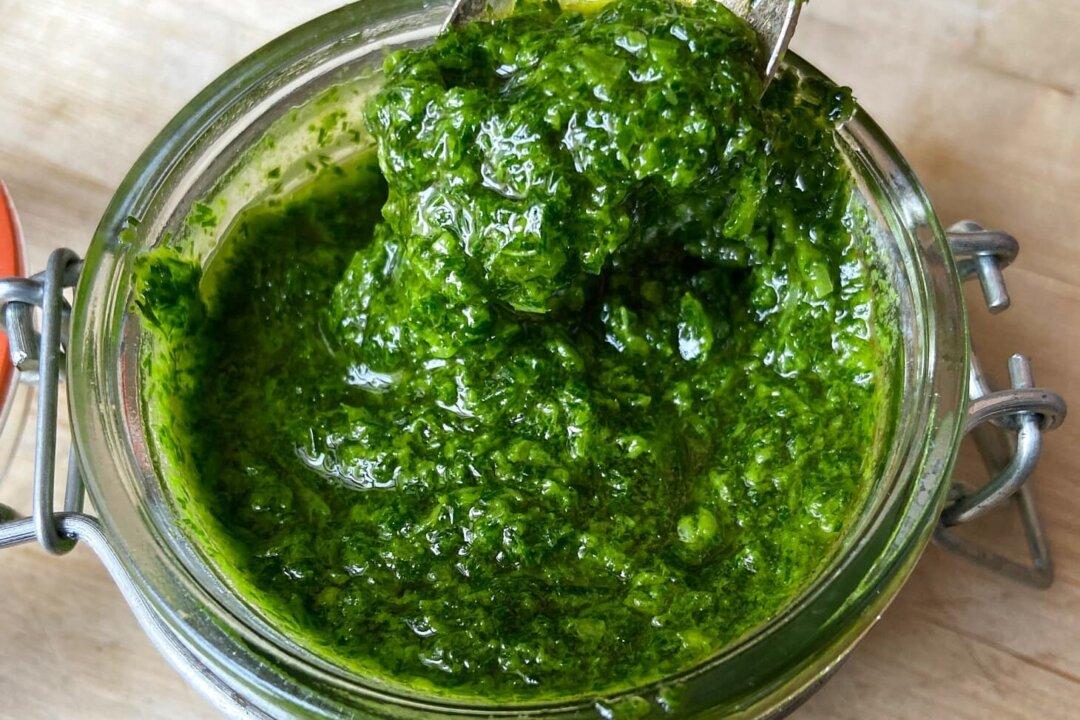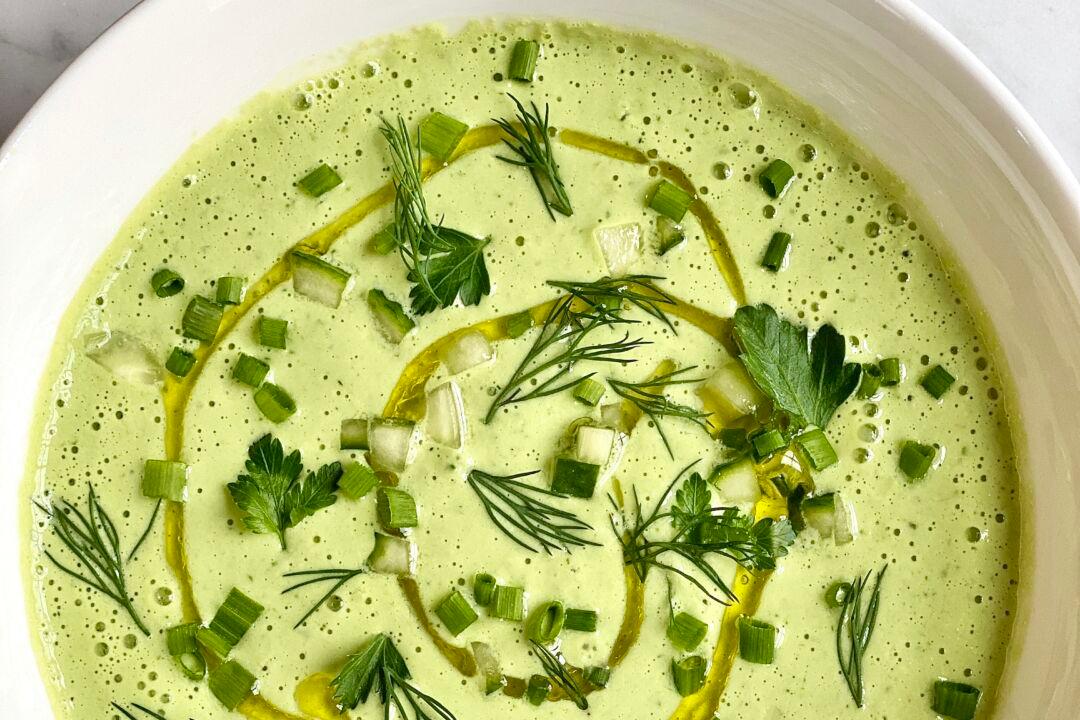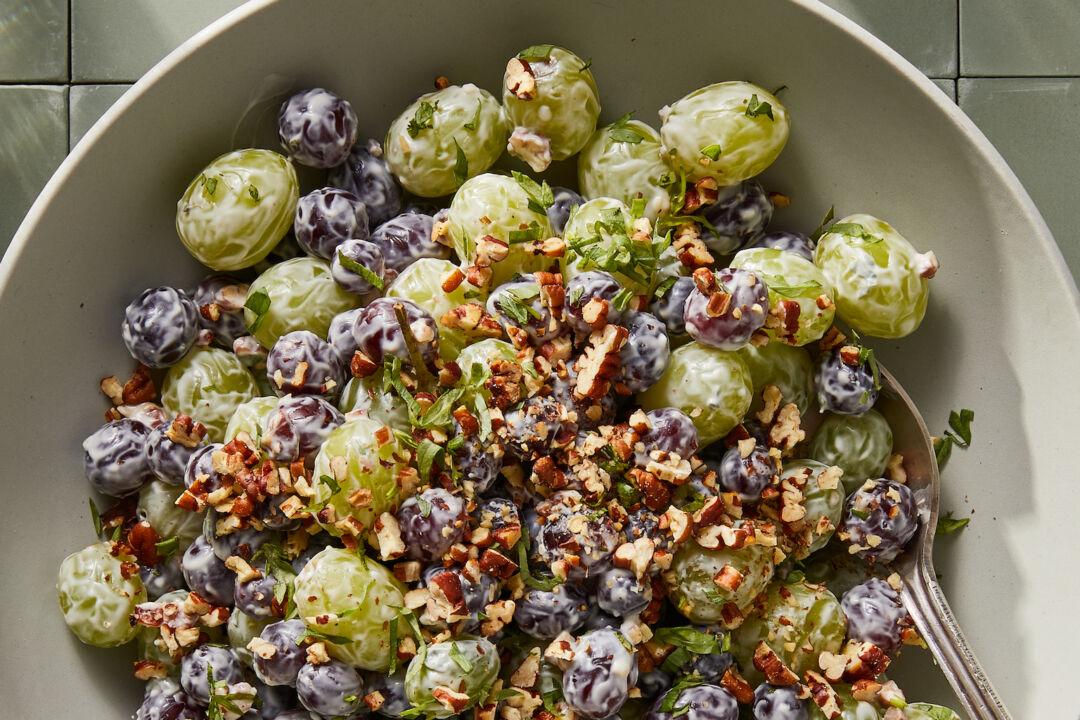I used to have a bad habit of buying herbs, using a small amount, and leaving the rest to wilt in my fridge. But then one day I had a thought: Instead of throwing the herbs away, what if I blended them all up into an easy herb sauce? As it turns out, this was a brilliant idea.
Homemade herb sauce has so many uses, and now, I keep some in my fridge year-round.





